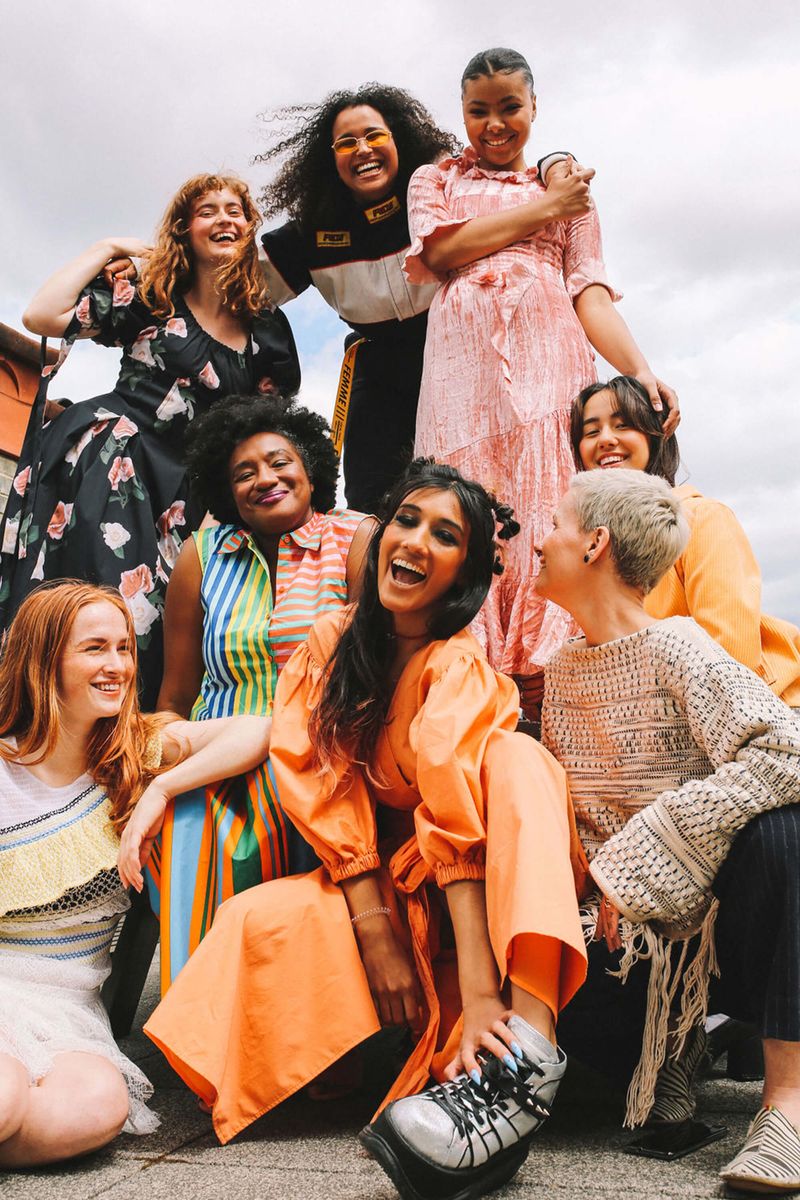Language evolves over time, and what was once hip and trendy in the 1960s may sound alien or even cringe-worthy to Gen Z today.
These 20 phrases from the ‘60s have somehow managed to stick around, but the younger generation is ready to bid them farewell.
From outdated slang to expressions that no longer resonate, here’s a list of sayings that Gen Z is eager to retire from the modern lexicon.
1. Groovy
The word ‘groovy’ once encapsulated all that was cool and trendy in the 1960s. Its association with the counterculture movement and the psychedelic vibes made it a staple of the era. However, today’s Gen Z finds it more cringey than cool.
While it’s a fun throwback for themed parties, in everyday conversation, it feels forced and out of place. The linguistic evolution has moved past such grooviness, favoring expressions that are more rooted in today’s reality. If you want to genuinely connect with younger folks, consider shelving this term.
2. Far out
‘Far out’ was a phrase that expressed amazement and enthusiasm back in the swinging ’60s. It signified something extraordinary or unbelievable. However, for Gen Z, this expression feels as distant as the stars.
The term doesn’t quite capture the current vibe, leaving many young people scratching their heads. Today, a simple ‘that’s amazing’ or a more contemporary equivalent would suffice. Language shifts, and what was once far out may now simply feel out of touch.
3. The Man
During the 1960s, ‘The Man’ referred to the establishment or authority figures oppressing the common people. It was a rallying cry for those resisting societal norms. Yet, in today’s context, Gen Z finds this phrase antiquated.
The concept of fighting ‘The Man’ has evolved, with young activists using more direct language to voice their concerns. While the sentiment remains, the language has shifted to better reflect the nuances of modern struggles. Consequently, ‘The Man’ seems more like a relic than a relevant term.
4. Right on
‘Right on’ was an affirmative expression used in the ’60s to show agreement or approval. It was full of enthusiasm and positive vibes, resonating with the spirit of the times. Today, however, it might elicit more of an eye roll than agreement from Gen Z.
This phrase feels outdated and doesn’t quite match the linguistic style of today’s youth. While it’s important to show support and agreement, there are fresher, more contemporary ways to do so without sounding like a blast from the past.
5. Flower power
The term ‘flower power’ was emblematic of the 1960s peace movement, representing passive resistance and non-violence. It conjured images of hippies and protests, advocating for peace and love. While the ideals remain relevant, the phrase itself has wilted with time.
For Gen Z, ‘flower power’ is more of a historical reference, unlikely to be used in everyday discussions about peace and activism. Modern youth seeks new ways to express these enduring values, focusing on actionable change rather than dated slogans.
6. Can you dig it?
In the 1960s, asking ‘Can you dig it?’ was a way to check if someone understood or agreed with what was being said. It was part of the era’s groovy vernacular, adding flair to conversations. However, it doesn’t quite resonate with today’s youth.
Gen Z prefers clearer and more direct communication. While the phrase is charming in its nostalgia, its practical use has faded. Most would rather just ask, ‘Do you get it?’ leaving the digging to archaeology.
7. Sock it to me
‘Sock it to me’ was popularized in the 1960s, often used in comedy to imply delivering a punchline or surprise. It carried an element of fun and mischief. Yet, for Gen Z, it feels like a dated punchline itself.
The humor and context don’t quite translate to modern sensibilities, making it less appealing to younger audiences. Humor has evolved, and while the phrase can still amuse in the right context, it’s not exactly a go-to expression for today’s generation.
8. Catch you on the flip side
This phrase was a popular way to say goodbye in the ’60s, originating from radio DJs who would play records, referring to the ‘flip side’ of a vinyl. It carried a casual, upbeat tone. However, for Gen Z, it’s more cryptic than casual.
Today’s digital natives prefer straightforward farewells or even emojis to convey the same sentiment. The nostalgia of vinyl records might intrigue some, but the saying itself has largely spun out of circulation.
9. Peace, love, and understanding
Once a mantra of the 1960s counterculture, ‘peace, love, and understanding’ embodied the era’s idealistic ethos. It was a call for harmony and empathy in turbulent times. Yet, for Gen Z, it may seem more like an old-timey slogan than a guiding principle.
While the values behind the words are timeless, the phrasing can feel dated. Younger generations tend to favor language that directly addresses current issues, seeking real-world applications for these enduring ideals rather than relying on nostalgic expressions.
10. Hang loose
‘Hang loose’ was a relaxed catchphrase popularized by surfers in the ’60s, symbolizing a carefree, laid-back lifestyle. While its spirit of relaxation is appealing, Gen Z might find the phrase itself a bit too vintage for everyday use.
Modern expressions of relaxation and chill vibes have evolved, making ‘hang loose’ sound more like a relic of surf culture than a current catchphrase. The sentiment remains relevant, but younger generations have their own ways of expressing the same laid-back attitude.
11. Hippie
The term ‘hippie’ defined a subculture in the 1960s characterized by peace, love, and a distinct rejection of mainstream values. It was synonymous with counterculture and civil rights activism. However, for Gen Z, the term feels more like a costume than a cultural identifier.
While the hippie movement’s ideals continue to influence modern activism, the word itself is often reserved for themed events or historical references. Younger generations are more likely to focus on the issues at hand without the vintage label attached.
12. Sock hop
In the 1960s, a ‘sock hop’ was a casual dance event typically held in a school gymnasium, where participants would often dance in their socks to avoid scuffing the floor. It was a staple of teenage social life. Today, Gen Z might be amused by the quaintness of the term.
While school dances remain popular, the term ‘sock hop’ hasn’t stood the test of time. Younger generations are more likely to attend proms or informal gatherings without the specific throwback terminology.
13. Daddy-o
‘Daddy-o’ was a term of casual address in the 1960s, often used among friends and peers. It added a sense of coolness and camaraderie to interactions. For Gen Z, however, it’s more likely to prompt giggles than genuine connection.
The phrase has an old-school charm, but it’s not something young people are likely to incorporate into their vocabulary. Modern slang has its own set of endearing terms that resonate more with today’s youth, leaving ‘Daddy-o’ as a humorous relic of the past.
14. Outta sight
‘Outta sight’ was a way to express something remarkable or impressive in the 1960s. It conveyed a sense of awe and admiration. However, for today’s Gen Z, it might sound as dated as a black-and-white TV.
The phrase doesn’t quite fit with the current slang that permeates social media and real-life conversations. While the sentiment of being impressed remains, the wording has evolved to better suit modern expressions, making ‘Outta sight’ a nostalgic echo rather than a relevant term.
15. Funky
The word ‘funky’ was used in the 1960s to describe something cool, unconventional, or with a strong rhythm, particularly in music. It was a term of appreciation. For Gen Z, though, it might conjure images of musty old records rather than a current jam.
While funk music has its place in history, the term ‘funky’ has largely fallen out of favor in contemporary slang. Today’s youth are more likely to use terms like ‘fire’ or ‘lit’ to describe something they enjoy, leaving ‘funky’ in the past.
16. Glam
In the 1960s, ‘glam’ was a shorthand for glamorous, often describing fashion and lifestyle. It carried connotations of style and sophistication. Today, however, Gen Z might find the word a bit too retro for their taste.
Fashion terms have evolved, and while glamour is timeless, the specific use of ‘glam’ doesn’t always fit with the sleek, minimalist trends popular among younger generations. They are more likely to speak of aesthetics in terms like ‘chic’ or ‘sleek’, leaving ‘glam’ as a nod to a bygone era.
17. Threads
‘Threads’ was slang for clothing in the 1960s, emphasizing cool and stylish attire. It was common to compliment someone’s ‘threads’ as a nod to their fashion sense. For Gen Z, however, it’s more likely to be associated with social media discussions than fashion.
The language of style has shifted, and while fashion remains an important form of expression, the term ‘threads’ appears more in digital conversations than in reference to clothing. Younger generations prefer more contemporary slang when discussing their wardrobe choices.
18. Mind-blowing
In the ’60s, ‘mind-blowing’ was used to describe an experience that was incredibly amazing or surprising. It carried a sense of wonder and expansiveness. Today, Gen Z might use it humorously, but it’s not as common in their everyday vocabulary.
While the phrase captures a certain intensity, modern slang often opts for words that are more succinct or specific. The evolution of language means that while ‘mind-blowing’ still holds meaning, it’s often reserved for dramatic effect rather than casual use.
19. Fuzz
‘The fuzz’ was a colloquial term for police in the 1960s, often used in a tongue-in-cheek manner. It reflected a certain distance or irreverence towards authority. For Gen Z, though, this term might seem quaint or even puzzling.
Modern discussions about law enforcement are more nuanced, with terminology that reflects the complexity of contemporary issues. While ‘the fuzz’ might appear in retro pop culture, it’s not part of the everyday language used by today’s younger generations.
20. Righteous
The term ‘righteous’ in the 1960s was used to describe something morally right or virtuous, often with a sense of passion. It was a word that conveyed integrity and conviction. However, for Gen Z, it might seem a bit too dramatic for everyday use.
While the concept of righteousness is still valued, the language around it has evolved to be more direct and less theatrical. Gen Z seeks words that resonate with their personal experiences and the current cultural climate, leaving ‘righteous’ as more of a historical descriptor.




















